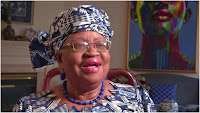“The WTO’s silence in the face of US defiance marks the slow death of multilateralism.”
When power tramples principle, the rulebook becomes
meaningless. The United States, once the architect of global trade discipline,
now stands as its most brazen violator. President Trump’s tariff crusade has
reduced the WTO’s founding ideals to diplomatic theatre.
When the World Trade Organization (WTO) was created, it was
supposed to end the era of arbitrary trade wars. Countries pledged to respect
the Most-Favored-Nation principle — no discrimination, no selective punishment.
Yet today, that rulebook lies in tatters, largely because the United States,
the self-proclaimed guardian of free trade, has chosen to ignore it.
President Donald Trump’s latest wave of tariffs on steel,
aluminum, and Chinese imports is nothing short of a declaration of defiance.
Cloaked in the language of “national security,” these measures are neither
lawful nor justified under WTO norms. These are pure economic bullying — a
tactic to reassert American dominance under the guise of protecting domestic
jobs.
Let’s be clear, the WTO’s Article XXI, which allows
exceptions for national security, was never meant to give license for economic
intimidation. Trump’s use of it is a cynical distortion, designed not to
protect US borders but to weaponize trade policy. It exposes the hypocrisy of
Washington preaching free markets abroad while practicing protectionism at
home.
WTO panels have already ruled against such tariffs, but the
US has paralyzed the system by blocking the appointment of judges to the
Appellate Body — effectively ensuring no verdict can ever be enforced. This
deliberate sabotage turns the WTO into a toothless watchdog, helpless against
the very member it was meant to discipline.
The tragedy is not merely in Washington’s defiance but in
the world’s silence. Each unjustified tariff erodes another layer of global
trust, while the WTO watches from the sidelines, stripped of authority. If the
international community fails to challenge US economic unilateralism now, the
collapse of the multilateral trading order will not be a distant fear — it will
be a fait accompli.



